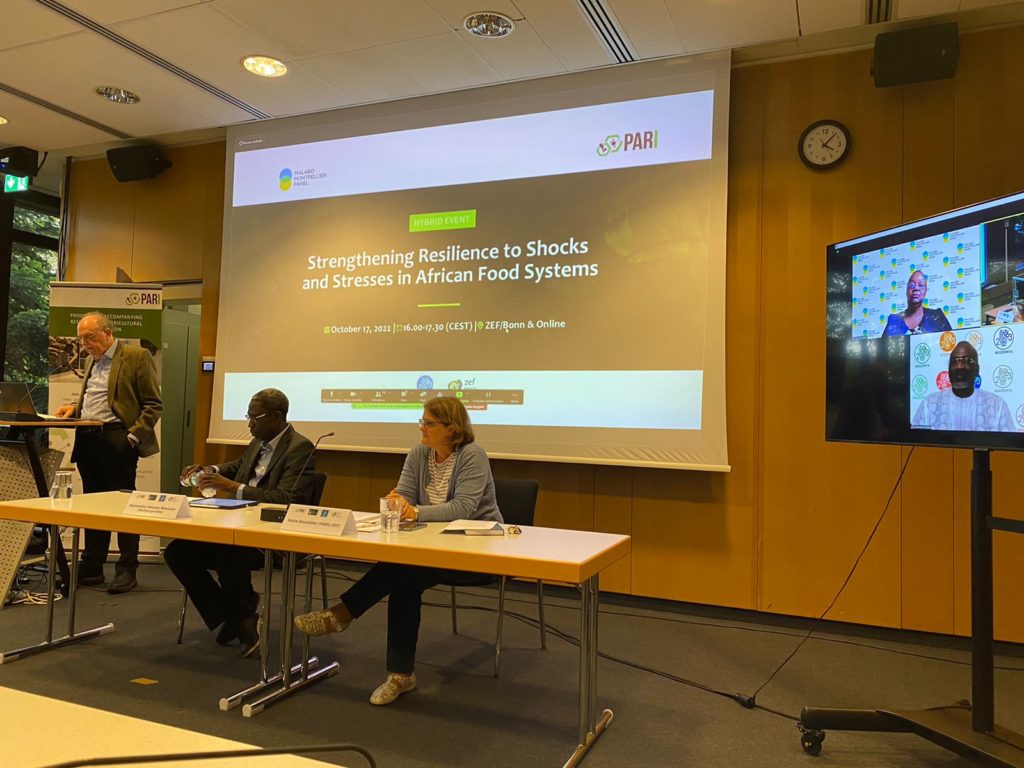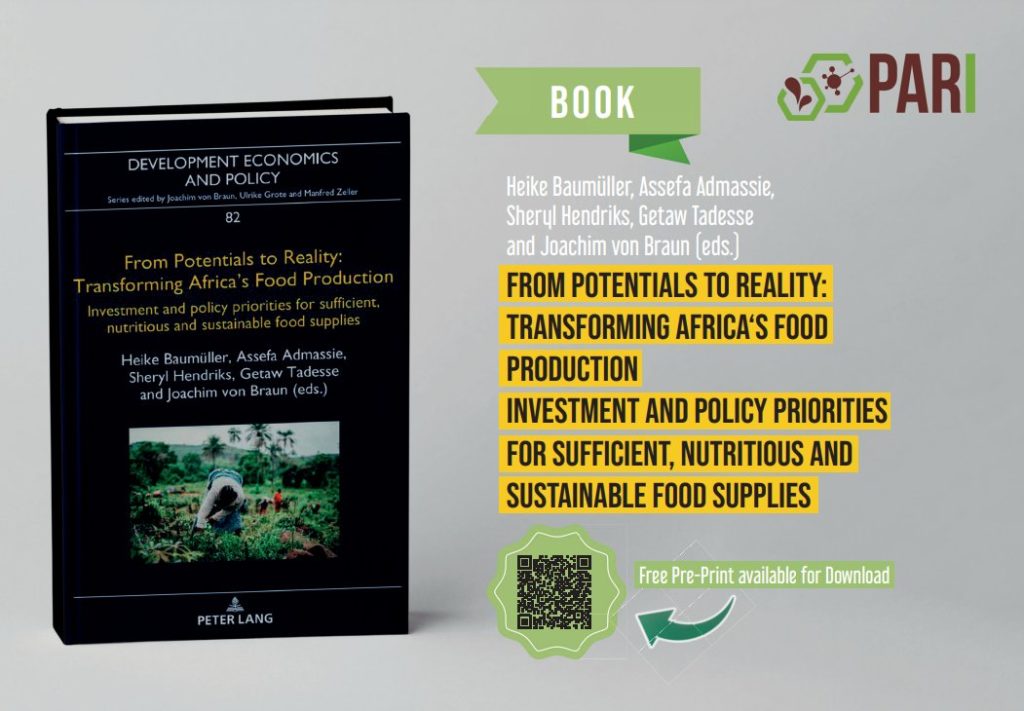On October 17, PARI/ZEF, the Malabo Montpellier Panel and AKADEMIYA2063 hosted a hybrid event to explore possible solutions to reducing African countries’ vulnerabilities to external stresses and shocks through targeted interventions within the food system.
The panel consisted of four experts. PARI coordinator and senior researcher Dr. Heike Baumüller was joined by Dr. Ousmane Badiane (AKADEMIYA2063 and Malabo Montpellier Panel), Prof. Dorothy Okello (School of Engineering at Makerere University and Malabo Montpellier Panel), and Dr. Mahamadou Issoufou-Wasmeier (Welthungerhilfe). Prof. Joachim von Braun (Distinguished Professor, Center for Development Research (ZEF) and Co-Chair of the Malabo Montpellier Panel) moderated the event and gave introductory remarks. Anke Oppermann (Head of Directorate 12 „Decent work worldwide, food and nutrition security”, Federal Ministry for Economic Cooperation and Development (BMZ)) gave an opening statement. Ms. Oppermann described the concerning rise in global food insecurity and stressed the importance of resilience for sustainable development.

The panellists then then gave brief statements in which they addressed possible ways to cope with shocks as well as ways to strengthen resilience. Dr. Badiane emphasized: “Shocks are here to stay, but it doesn’t have to lead to large scale suffering or permanent damage to livelihoods”. Instead, ways must be found to deal with shocks appropriately and more systematically. Prof. Okello stressed the need to strengthen and empower communities, pointing to the great potential that lies in technology and digital transformation. Susbequently, Dr. Issoufou-Wassmeier stated that action is needed now to put food systems on a new and sustainable footing. PARI coordinator Dr. Baumüller pointed out key messages of transforming Africa’s food production emphasizing complementary factors along the value chain, e.g. of agricultural technologies and mechanization, sustainable land use, inclusive markets and training. The statements were followed by a Q&A session, in which, among other things, the role of regional trade was discussed.
In the closing remarks, the role of technologies and digital innovations was once again highlighted. Dr. Baumüller stated that sustainable development, environmental protection and economic development are not mutually exclusive, but that it is rather a matter of compromise. The panellists further agreed that the sucess of interventions is only possible with engagement and commitment of all stakeholders. Referring to the current multidimensional crises encompassing the pandemic, climate change and the food price With a view to the current multidimensional crises, ranging from the pandemic to climate change to the food price crises caused by the Russian war, moderator Prof. Joachim von Braun emphasised in his closing remarks that the covariant shocks cannot be tackled at the local level alone; international action is needed here. Prof. von Braun found cautionary words: “We must not miss the strategic focus on long-term solutions while trying to manage the short-term. Forward-thinking and long-term strategies are necessary.”
The event ended with a lottery where participants could win copies of the print version of the book “From Potentials to Reality: Transforming Africa’s Food Production”. The book aims to identify how Africa may transform its potentials into realities and actually secure its supply of food for affordable and healthy diets from the sustainable use of resources. The digital copy is available free of charge in German and English.

